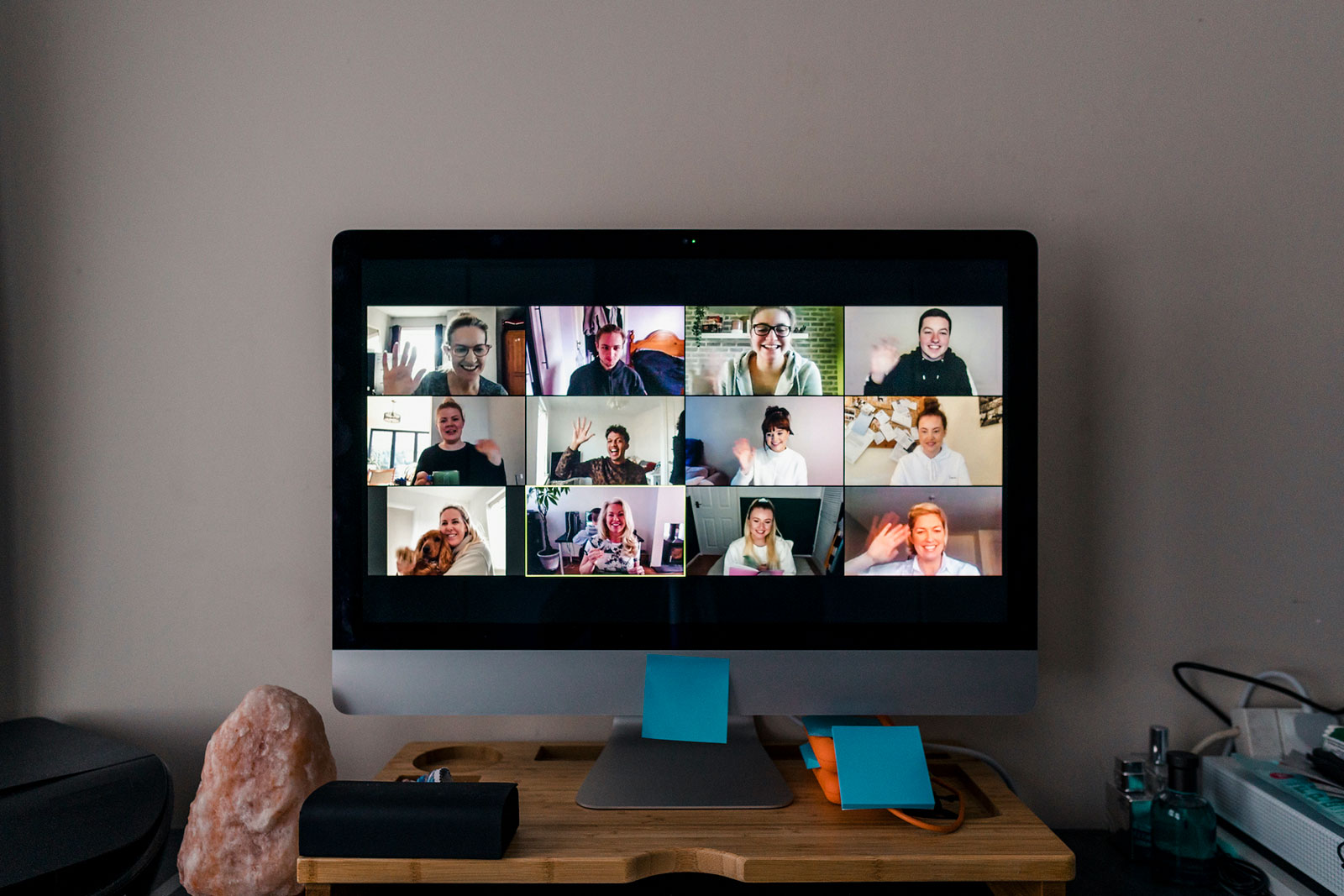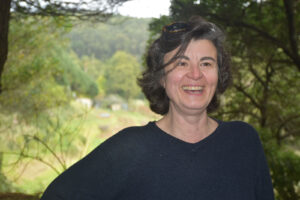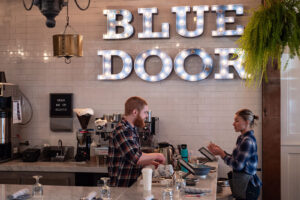Twist Out Cancer’s CEO Jenna Benn Shersher is no stranger to the isolation the novel coronavirus can bring. Diagnosed at 29 with gray zone lymphoma, Shersher created the nonprofit online while immunocompromised and confined indoors. The organization, which utilizes the creative arts to provide psychosocial support for those touched by cancer, eventually shifted to face-to-face events and programs as Shersher finished treatment. But Twist Out Cancer is now returning to its roots to abide by social distancing guidelines, and rather than feeling discouraged at the prospect, Shersher welcomes the challenge, seeing it as an opportunity to better meet the needs of participants.
“Of course we’d love to gather in the way that we have, but I also need to be realistic about our population and our community, and the last thing I want to do is make people feel unsafe,” Shersher says. “I find the shift to be very exciting. I get to think more globally about the experience of our community.”
That awareness is crucial for cancer warriors. A study published in Annals of Oncology focused on 28 patients with cancer who tested positive for the COVID-19 infection in Wuhan, China. These individuals presented poor outcomes and high probability of severe events and mortality, with the time from diagnosis to severe events being a mere seven days. 53.6% of the patients experienced ICU admission, use of a ventilator or death. Researchers concluded that the simplest action high-risk patients can take in this pandemic is to social distance or isolate.
Because of that, it is now more beneficial than ever for cancer warriors to have a sense of community. Shersher recognizes the vulnerability accompanying people touched by cancer during a global health crisis, and she wants to ensure that anyone feeling particularly isolated can access free programs and events safely and virtually through Twist Out Cancer for as long as needed. Free online offerings, now open to anyone, range from expressive art workshops for families to isolation survival guide Zoom discussions. No-cost virtual “Twistshops” led by a licensed clinical art therapist also happen once a week. Looking ahead, Twist Out Cancer is preparing to plan for both hybrid and total virtual events and programs, even when in-person gatherings are deemed safe.
“I know what it’s like to slowly reintegrate into the world because I’ve lived that – it took me a full year to feel comfortable in gatherings,” Shersher says. “I think it’s going to be a very similar experience for all of us. Embracing and utilizing the virtual space is going to forever be our future.”
Shersher also believes that organizations focusing less on large-scale event planning opens the door to broader program development. This is the case for other nonprofits such as Leukemia & Lymphoma Society (LLS) and Lung Cancer Research Foundation (LCRF); both now offer free virtual support groups for cancer warriors that are cost-effective and engaging. LLS introduced “Banding Together: Feeling Good Friday” chats for warriors and family to connect and support each other, and LCRF’s weekly “#TogetherSeparately” Zoom forum features scientific Advisory Board members answering questions and concerns of lung cancer warriors during COVID-19.
Of course we’d love to gather in the way that we have, but I also need to be realistic about our population and our community, and the last thing I want to do is make people feel unsafe
For Twist Out Cancer, this pivot to virtual also serves as an exercise in creativity for Shersher when it comes to fundraising events. The nonprofit typically hosts highly-attended art exhibitions and galas throughout the year to celebrate its Brushes With Cancer program that matches a cancer warrior with an artist who creates a unique work reflective of the warrior’s journey and auctions it at the fundraising events.
With many IRL events on the back burner, Shersher will finally bring her dream of digitizing Twist Out Cancer’s events for larger reach and accessibility to fruition. Since the program’s inception, Shersher says she always thought about what her former self—the one who was immunocompromised, confined indoors, alone—would have wanted and needed. The pandemic has seemingly offered the final push for the organization to develop a livestream component and introduce the use of virtual reality (with VR headsets provided to ticket holders by the nonprofit and its sponsors) to showcase galleries for participants unable or unwilling to be physically present, all while still raising funds.
Twist Out Cancer is not the only nonprofit oddly prepared for this sudden shift to the web. LauraJane Hyde, CEO of Gilda’s Club Chicago, says virtual programming and support groups were a key initiative in 2020 for the nonprofit. While they did not envision as dramatic of a pivot to digital as COVID-19 necessitated, they did understand the importance of developing virtual offerings.
After a hectic Friday in what Hyde calls the “war room” in early March as social distancing guidelines were first introduced, the Gilda’s Club’s team walked away with new communications plans, feeling confident about the immediate switch. “It was amazing to be a part of that team,” Hyde says. “We didn’t know what we didn’t know; we knew we were going to learn as we went, and we knew there might be what one might call mistakes. But I don’t think of them as mistakes.”
Gilda’s Club now offers more than 150 free virtual programs a month for those touched by cancer, ranging from yoga and journaling to coffee chats and networking. In the beginning, attendance was approximately 45 people and now caps around 400. Hyde is pleased with the reach and positive reception from participants. “We’ve heard from participants that they’re so grateful we’re doing this,” says Hyde. “This is a way to keep them safely connected without those geographical or physical barriers.”
Shersher of Twist Out Cancer echoes the sentiment, stressing that the main priority is creating meaningful connections with others, no matter where they are located. If anything, the screen has created a safe space where people let their guard down and feel comfortable—while still having fun. “Why can’t we have a concert with so-and-so, or have a virtual dance party through Zoom?” Shersher muses. “We can totally do those things!”







